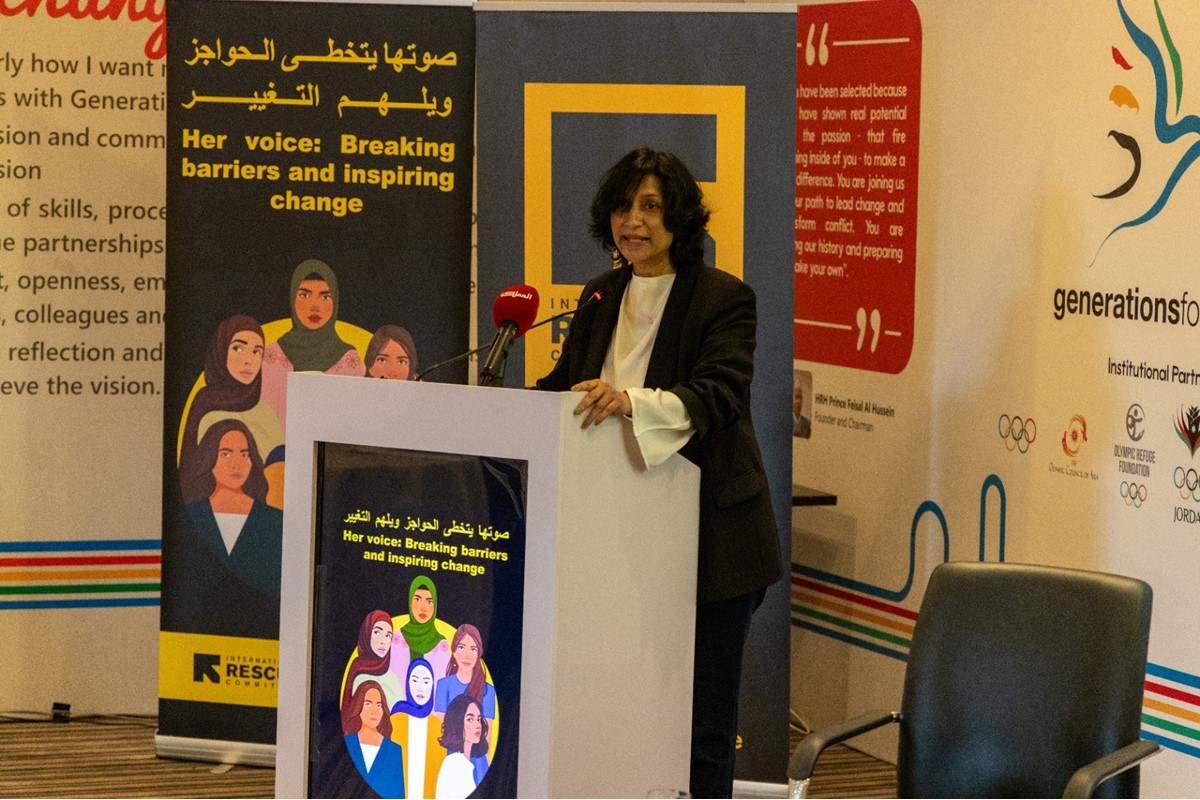AMMAN — On International Women’s Day, which falls on March 8 annually, the International Rescue Committee hosted a panel discussion titled “Her Voice: Breaking Barriers and Inspiring Change.” During the opening remarks, Country Director IRC Nivedita Monga emphasized that while Jordan boasts one of the world’s highest literacy rates, it currently ranks third globally for the lowest levels of women’s participation in the workforce, standing at only 14 percent.
اضافة اعلان
She added, “This event aims to shed light on the challenges and experiences of women in Jordan who have been able to break the barriers they faced to achieve their goals. While we acknowledge the progress made by the Government of Jordan on this matter, the road ahead towards closing the gender gap in Jordan is still long.”
Following her opening remarks, Nour Maghrabi, a gender specialist at the World Bank, highlighted a few staggering statistics: while women make up 50.4 percent of the working-age population of nearly 5.5 million people, less than 14 percent of these women participate in the labor force, compared with 53 percent of men.
Moreover, she added that a WB study shows the majority of Jordanians are in favor of women’s work outside the home, yet some beliefs and expectations may hinder their work, including perceptions of concerns closely related to gender roles of married women or interference with caregiving responsibilities, mixed work environments, and more.
She also shared that there needs to be a push for transformational change in Jordan’s labor market, highlighting that there is a large potential to unlock women’s economic potential, aligned with the Engendered Strategy of the Economic Vision and National Strategy for Women 2023-2025.
Following Magrhabi’s remarks, four women who chose the entrepreneurship route shared their woes, hopes, and optimism for the future.

Zain Ayoob Al-Wekhian, owner of Dr. Candy Snack, who makes low-sugar healthy snacks aimed at kids, discussed that one of her biggest challenges was not necessarily financial gain but learning how to market her products, highlighting that packaging is everything.
With a Bachelor’s of Science and Master’s of Science in Civil Engineering, she touched on some of the issues that she had faced when pursuing a full-time career, especially as a mother and wife, highlighting that while the entrepreneurial route is not easy and requires more work, she can have the flexibility she needs to earn income and take care of her children.
Meanwhile, Hamida Alaasmi, a photographer, discussed her route, sharing, “There is a lot of opportunity for women in Jordan, but we need to know how to get there,” adding that social media has facilitated the quest to find opportunities. Still, there needs to be a more streamlined process.
She added, “Freedom does not come easily; you need to find it.”
Nada Akamai, a graphic designer, and mosaicist who is teaching kids how to make mosaics, considers her profession less of a craft but a means to alleviate and contribute to art psychology by allowing children or adults to work with their hands and learn something necessary. She added that it is also important that women know how they can talk about themselves in situations and pitch themselves, calling on governmental schools in Jordan to provide more classes or curricula on public speaking.
While Ruba Farraj touched on some of the lesser-known angles of being a business owner. Farraj, who is a henna artist, added that when she wanted to register her business, she was given the runaround from different ministries, calling for a more streamlined process, and added that she created some new products from henna that include color but sometimes still has to overcome some of the societal expectations or perceptions on Henna art.
To achieve greater female participation in the country’s workforce, the IRC calls on stakeholders and relevant authorities to work on a holistic approach focusing on ensuring access to affordable and quality childcare, improving the public transportation system, and changing public perceptions and social norms about gender roles and relations through behavioral change campaigns that target both men and women.
Read more feature items
Jordan News



